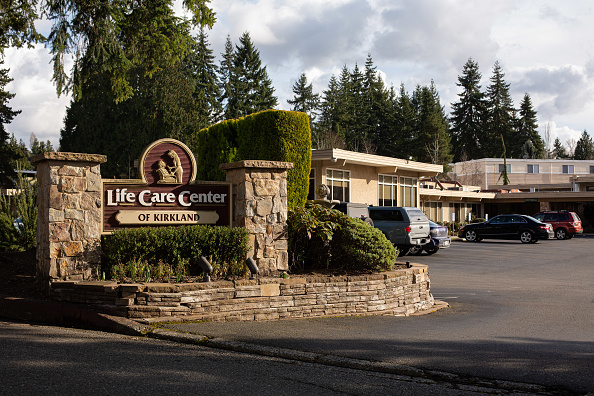
At the Life Care Center nursing home in Kirkland, Washington, 35 deaths and more than 100 infections have been attributed to Covid-19. In the weeks since, the initial outbreak, more than 40,000 cases and more than 500 deaths have been attributed to the virus, according to data from Johns Hopkins University.
According to data released Monday by the Centers for Medicare and Medicaid Services (CMS), 147 nursing homes across 27 states have at least one resident with Covid-19. Long-term care facilities are particularly susceptible to the virus, with older patients and those with other health conditions experiencing severe symptoms more frequently.
“Although 147 is a small fraction of the over 15,000 nursing homes across the country, given the disproportionate effect on our nation’s older population, this is a cause for concern,” CMS stated.
The Kirkland Life Care Center had been fined a year ago over infection control deficiencies. Further problems were found in an investigation conducted on March 16, after the Covid-19 outbreak, by CMS and the Washington Department of Social and Health Services (DSHS).
Inspectors found three “immediate jeopardy” situations, where patient safety was put in immediate danger, according to a preliminary report released Monday. They included:

A Deep-dive Into Specialty Pharma
A specialty drug is a class of prescription medications used to treat complex, chronic or rare medical conditions. Although this classification was originally intended to define the treatment of rare, also termed “orphan” diseases, affecting fewer than 200,000 people in the US, more recently, specialty drugs have emerged as the cornerstone of treatment for chronic and complex diseases such as cancer, autoimmune conditions, diabetes, hepatitis C, and HIV/AIDS.
- Failure to rapidly identify and manage ill residents
- Failure to notify the Washington Department of Health about the increasing rate of respiratory infection among residents
- Failure to possess a sufficient backup plan after the facility’s primary clinician fell ill.
DSHS Secretary Cheryl Strange said regulatory teams would visit all nursing homes across the state to ensure they are practicing proper infection control.
“We have worked closely with our federal partners over the last several weeks to determine what lead to the outbreak there and what contributed to its spread throughout the facility. We have learned valuable lessons,” she said in a news release. “We are applying these lessons daily in our efforts to prepare long term care facilities throughout the state for the potential of COVID-19.”
CMS is also scaling back non-emergency inspections to focus on infection control. The agency said it would conduct targeted inspections using information from the Centers for Disease Control and Prevention about where the virus is currently located and where it is likely to hit next.
CMS also providing its infection control checklist with long-term care facilities and suppliers so they can conduct self-assessments of their infection control plans.
Photo credit: David Ryder, Getty Images












